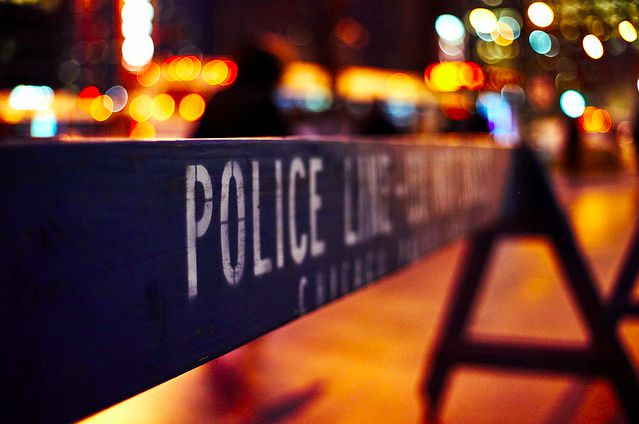County Official Calls For State Of Emergency To Be Declared In Chicago Over Violence
By Sam Stecklow in News on Feb 5, 2016 10:03PM
In a letter to Gov. Bruce Rauner, Cook County Commissioner Richard Boykin asked the embattled head of the state to declare a state of emergency in Chicago, which he says will "open up" federal resources that the city and county need to combat gun violence—51 people were killed and 292 were shot in Chicago last month.
Specifically, Boykin requested that the federal government put together Tactical Neighborhood Stabilization teams, made up of members of various government agencies; federal law enforcement support to help the Chicago Police Department close some of its many open homicide cases; and an economic stimulus package to help attract businesses and jobs to violence-plagued neighborhoods on the South and West Sides.
In a statement, a spokesperson for Rauner said, "Governor Rauner is troubled by gun violence in Chicago, and he believes increasing education and job opportunities is central to reducing violence in Chicago and the rest of the state. Unfortunately, there is no federal assistance available if the Governor proclaimed a state of emergency in this situation."
When I brought up Rauner's point that federal funding is not a guaranteed component of declaring a state of emergency, which is generally done by governors in response to environmental crises, Boykin told Chicagoist, "You have to be creative. If you don't ask, you don't get." He places much of the blame for the uptick in gun violence—January had the most killings in Chicago since 2000—on the budget impasse between Rauner and democrats in the General Assembly. "The state is paralyzed because we don’t have a budget, so we're not funding violence prevention programs.… If the state is impotent, who’s gonna protect the people?" Boykin said.
In 2014, the Chicago Police Department only closed 28.7 percent of the murders that occurred during that year—about 34 percentage points lower than the average for American police departments.
"What you have is people committing crimes who aren't being caught," Boykin, who represents parts of the West Side and some western suburbs, said. When asked if he was concerned with an increased police presence, in the form of federal law enforcement officers, in neighborhoods where much of police misconduct in the city is reported, he said that he expected "everybody to police in a respectful and responsible manner.… People deserve to be protected in our neighborhoods."
Last month, the Sun-Times reported that some police officers are blaming the uptick in violence to something called the "ACLU effect," brought on by an agreement between the CPD and the ACLU of Illinois that the officers said made it more difficult to conduct street stops, which are more colloquially known as "stop-and-frisk." As reported by South Side Weekly, Chicago's use of the controversial "stop-and-frisk" program, though it is not called that here, dwarfs New York City's at that program's absolute height. Boykin called the cops' claims "laughable," but noted that it underscored his point that further federal intervention is needed.
